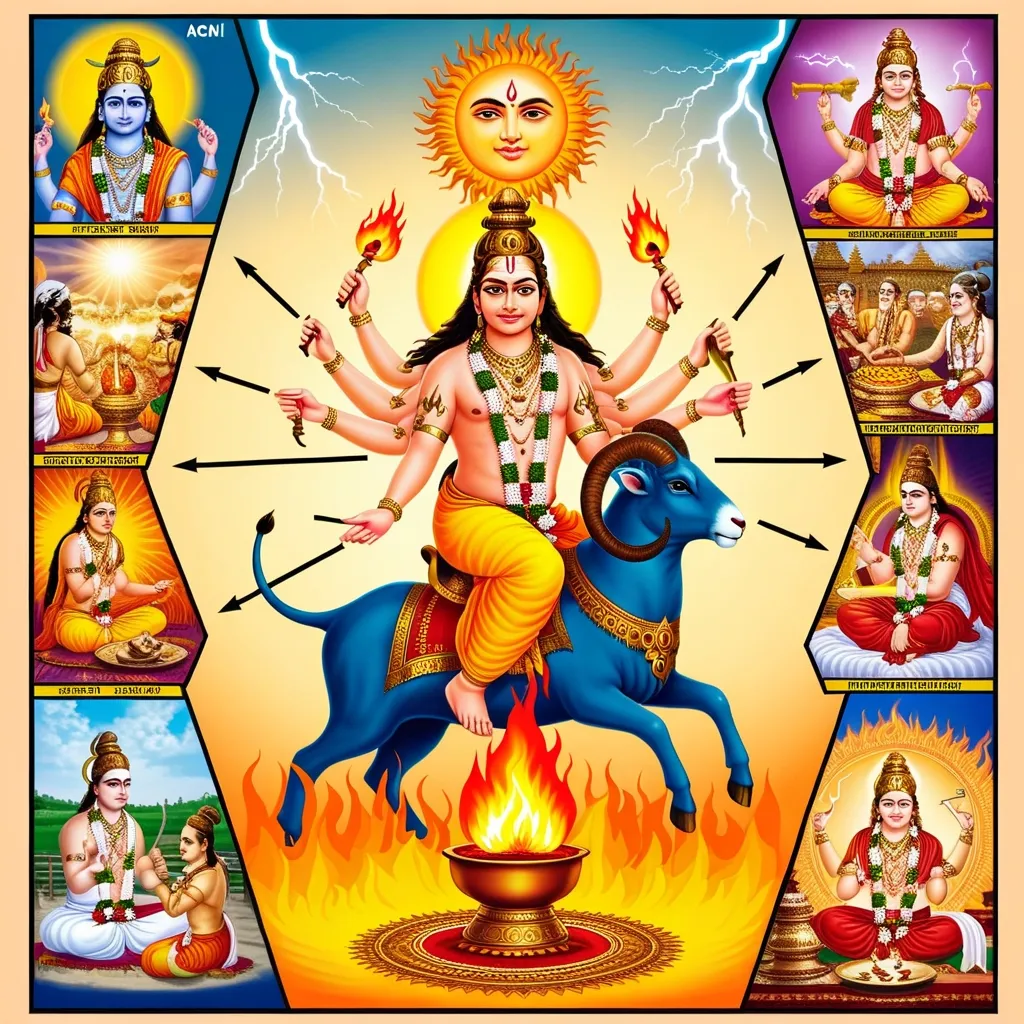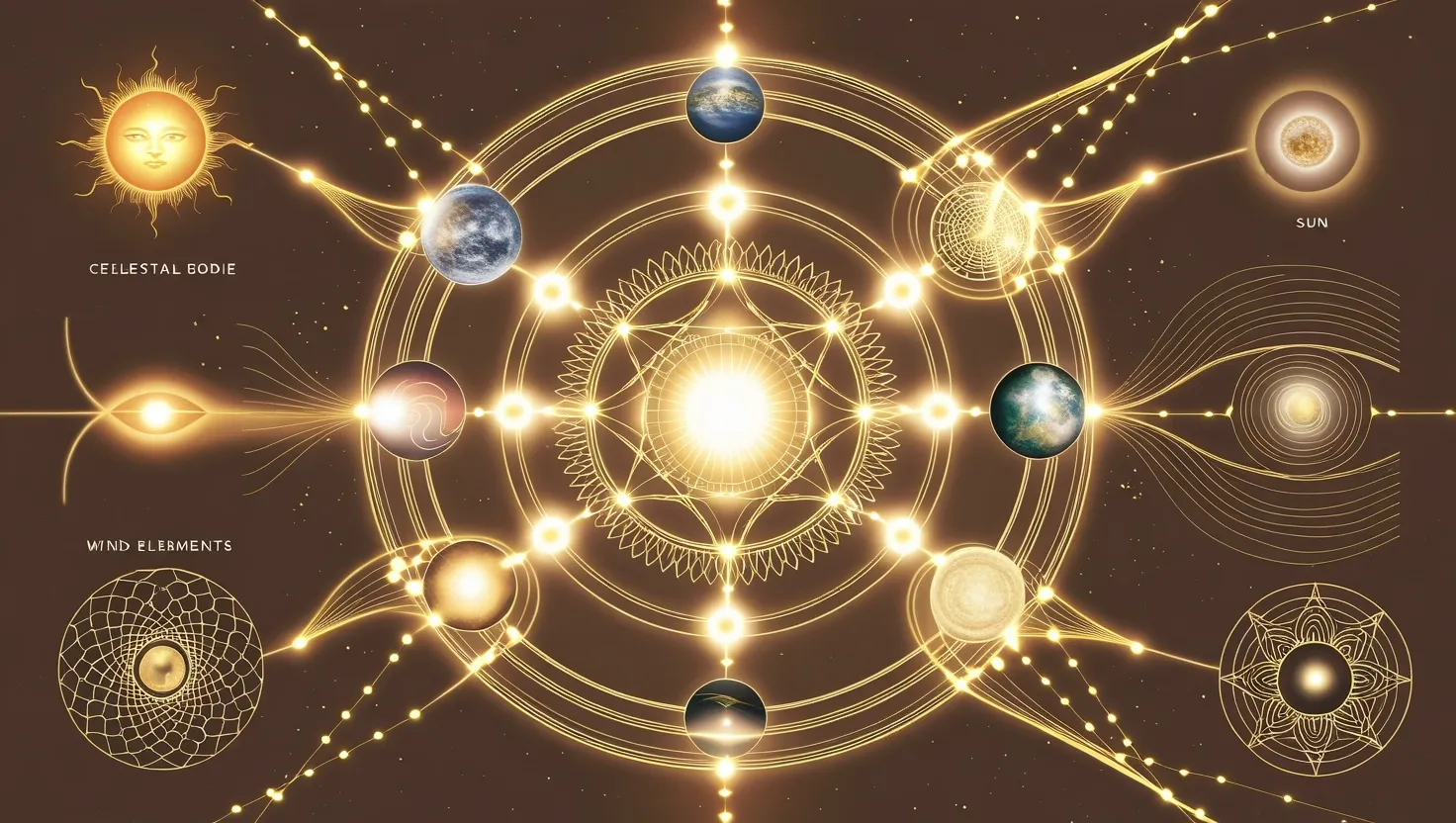In the vibrant world of Hindu scriptures, the Yajur Veda stands tall as a crucial text, deeply probing the rituals and sacrifices central to ancient Vedic life. At the heart of these rituals is Agni, the revered god of fire. The Agni Sukta, or hymns praising Agni, are vital in Vedic worship, shedding light on his pivotal role and significance.
Agni isn’t just a fire god. He’s seen as the spark that breathes life into everything. He manifests as the sun’s flames, the sky’s lightning, and the home’s nourishing hearth fire. This trio makes Agni a universal presence, linking heaven, the atmosphere, and earth seamlessly.
Agni shines as a significant messenger. He bridges the divine and human realms, acting as the priest in sacrifices, delivering offerings to the gods. His seven tongues, each uniquely named, symbolize his skill in consuming and transporting these offerings effectively. In Vedic rituals, Agni is essential because no god is approached without him leading the way.
The opening mantra of the Rig Veda, which merges into the Yajur Veda, kicks off with praises for Agni. It shines a spotlight on his role as an invoker, the deity who leads, embodies truth, and brings delight. Invoking Agni is crucial for summoning divine forces to the sacrificial site.
In art, Agni is often depicted with two heads: one benevolent and one malevolent. He’s shown with three legs, seven arms, riding a ram, and adorned with a fruit garland. This imagery reflects his dual nature: the nurturing fire that supports life and the fierce fire that can destroy and purify.
Fire sacrifices, or yajnas, are the heart of Vedic worship, with Agni at the center. Priests build a fire in specially crafted pits, chant sacred verses, and feed offerings into Agni’s mouth. Agni then delivers these offerings to the gods, ensuring favorable conditions for humanity’s well-being.
Agni’s significance isn’t limited to sacrificial fires. He’s tied to the sun god, Surya, sometimes accompanying him across the sky. This link highlights Agni’s connection to consciousness and spiritual intelligence, represented by the sun’s illuminating light.
In Hindu traditions, Agni is central to various rituals. He’s the main witness in traditional Hindu weddings’ Saptapadi ceremony and crucial in the Upanayana ceremony, a significant rite of passage for young men. During festivals like Deepavali, Agni is honored by lighting diyas, symbolizing light’s victory over darkness.
And it’s not just the grand rituals. Agni permeates everyday life. The household hearth fire, embodying Agni, symbolizes warmth, comfort, and community. It’s the magical, joyful glow that brings people together in any gathering. This domestic aspect of Agni makes him a welcome figure in every home.
In spiritual practices like yoga, working with fire cultivates ‘tapas’—the heat generated by focusing the mind and controlling sensory energy. This purification process is believed to purify the body, sense organs, and the inner workings of the mind, intellect, ego, and discernment.
Agni is often described as the child of Heaven and Earth or Dyaus (Heaven) and Aditi. He’s sometimes seen as the twin brother of Indra, the king of the gods. His consort is Svaha, and he has several children, including Pavaka, Pavamana, Shuchi, Nila, and Agneya.
Agni is known by many names reflecting his various forms and traits. He’s called Jataveda, Saptajihva, Havyavahana, and Vaisvanara, among others. These names capture his multifaceted nature and role in different life and worship aspects.
Even today, despite Hinduism’s evolution over centuries, Agni remains vital in Hindu traditions. His essence has become metaphorical, symbolizing transformative energy and knowledge. This lasting relevance underlines Agni’s timeless importance in Hindu culture and spirituality.
Agni isn’t just the fire god. He symbolizes life, energy, and transformation, seamlessly connecting the divine and human realms through his versatile presence. The hymns praising him in the Yajur Veda underscore his central role in Vedic rituals and his enduring importance in Hinduism’s cultural and spiritual fabric.






